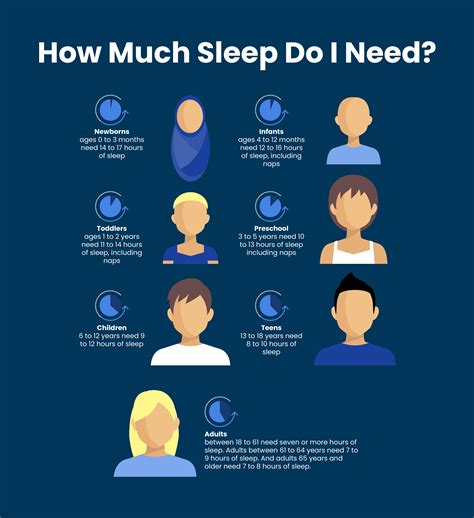Introduction

Sleep is essential for our physical, mental, and emotional health. It helps our bodies repair themselves, consolidates memories, and regulates hormones. But how much sleep do we really need?
The Current State of Sleep in America
According to the Centers for Disease Control and Prevention (CDC), about one-third of American adults are not getting enough sleep. This is due to a number of factors, including:
- Our increasingly busy lives: We are working longer hours, commuting more, and taking on more responsibilities at home.
- The rise of technology: We are spending more time on our electronic devices, which can disrupt our sleep.
- The changing nature of work: More people are working non-traditional hours, which can make it difficult to stick to a regular sleep schedule.
How Much Sleep Do You Need?
The amount of sleep you need varies depending on your age, health, and activity level. However, most adults need around 7-8 hours of sleep per night.
The Benefits of Getting Enough Sleep
Getting enough sleep has a number of benefits, including:
- Improved physical health: Sleep helps our bodies repair themselves and fight off infection. It can also reduce our risk of chronic diseases such as heart disease, stroke, and diabetes.
- Better mental health: Sleep is essential for our mental health. It helps us regulate our emotions, improve our mood, and reduce our risk of depression and anxiety.
- Enhanced cognitive function: Sleep helps us consolidate memories and improve our cognitive function. It can also help us learn new things and problem-solve more effectively.
The Risks of Not Getting Enough Sleep
Not getting enough sleep can have a number of negative consequences, including:
- Fatigue and irritability: Lack of sleep can make us feel tired, irritable, and unable to concentrate.
- Increased risk of accidents: Drowsy driving is a major cause of car accidents.
- Impaired judgment: Lack of sleep can impair our judgment and decision-making abilities.
- Increased risk of chronic diseases: Not getting enough sleep can increase our risk of chronic diseases such as obesity, heart disease, and diabetes.
How to Get a Good Night’s Sleep
There are a number of things you can do to improve your sleep, including:
- Establish a regular sleep schedule: Go to bed and wake up at the same time each day, even on weekends.
- Create a relaxing bedtime routine: Wind down before bed by doing activities such as reading, taking a bath, or listening to calming music.
- Make sure your bedroom is dark, quiet, and cool: These conditions are ideal for sleep.
- Avoid caffeine and alcohol before bed: These substances can interfere with sleep.
- Get regular exercise: Exercise can help you sleep better, but avoid exercising too close to bedtime.
- See a doctor if you have trouble sleeping: If you have trouble sleeping, see a doctor to rule out any underlying medical conditions.
Conclusion
Sleep is essential for our health and well-being. Most adults need around 7-8 hours of sleep per night. By following the tips in this article, you can improve your sleep and enjoy the many benefits it has to offer.
1. How can I tell if I’m not getting enough sleep?
Some signs that you may not be getting enough sleep include:
- Feeling tired during the day
- Having difficulty concentrating
- Being irritable or moody
- Making mistakes
- Having difficulty falling asleep or staying asleep
2. What are the consequences of not getting enough sleep?
Not getting enough sleep can have a number of negative consequences, including:
- Fatigue and irritability
- Increased risk of accidents
- Impaired judgment
- Increased risk of chronic diseases
3. What can I do to improve my sleep?
There are a number of things you can do to improve your sleep, including:
- Establishing a regular sleep schedule
- Creating a relaxing bedtime routine
- Making sure your bedroom is dark, quiet, and cool
- Avoiding caffeine and alcohol before bed
- Getting regular exercise
- Seeing a doctor if you have trouble sleeping
4. How much sleep do I need?
The amount of sleep you need varies depending on your age, health, and activity level. However, most adults need around 7-8 hours of sleep per night.
5. Is it okay to take naps?
Naps can be a great way to improve your sleep. However, it is important to keep your naps short (20-30 minutes) and to avoid napping too close to bedtime.
6. What are some tips for falling asleep faster?
Some tips for falling asleep faster include:
- Taking a warm bath before bed
- Reading a book
- Listening to calming music
- Meditating
7. What are some tips for staying asleep?
Some tips for staying asleep include:
- Avoiding caffeine and alcohol before bed
- Making sure your bedroom is dark, quiet, and cool
- Using a white noise machine or fan to block out noise
- Getting regular exercise
8. When should I see a doctor about my sleep?
You should see a doctor about your sleep if you:
- Have trouble falling asleep or staying asleep
- Are tired during the day
- Have difficulty concentrating
- Are irritable or moody
- Are making mistakes
- Have difficulty performing your daily activities
















